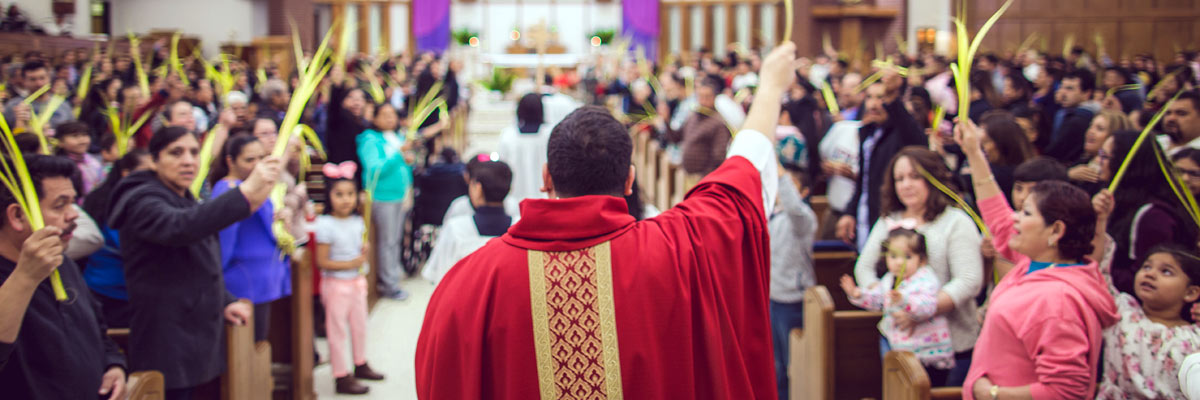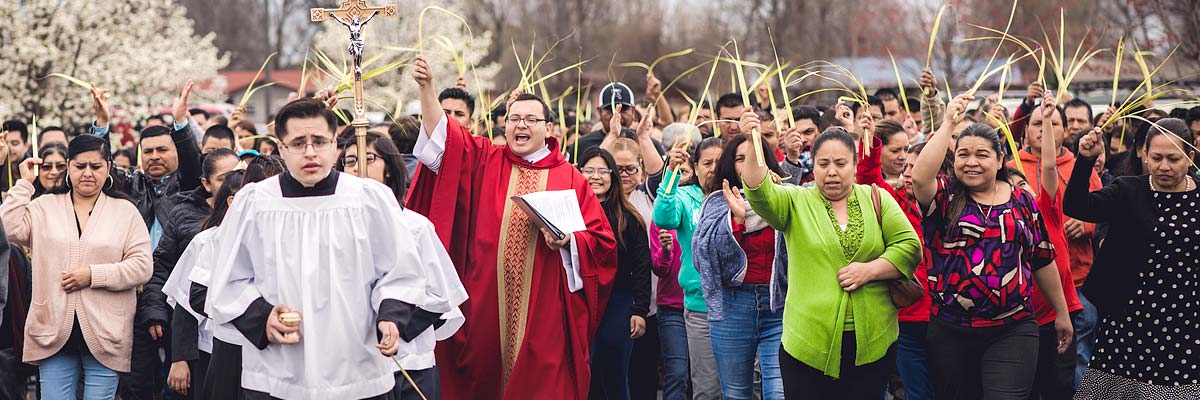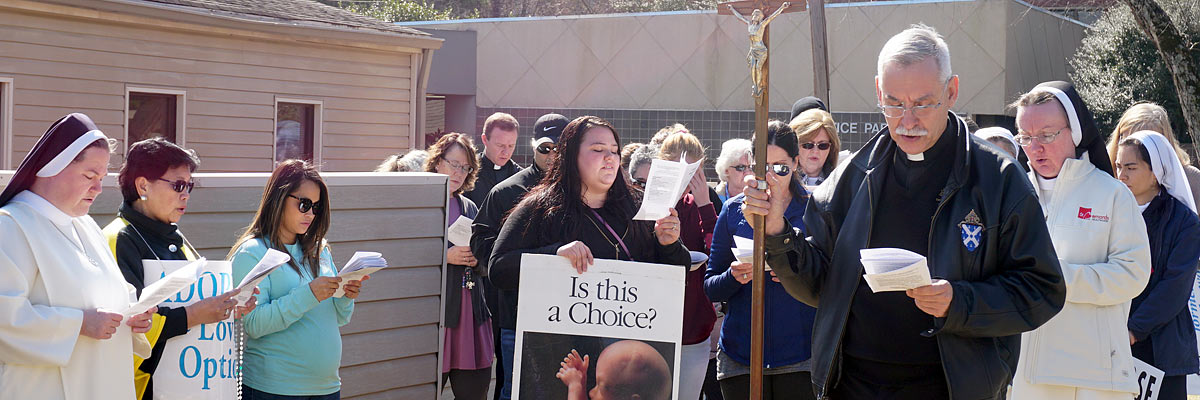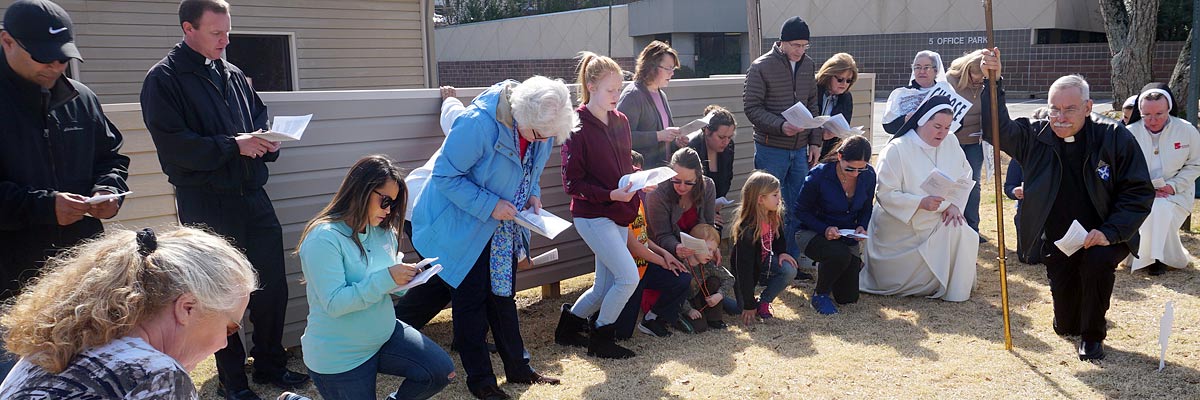Official Website of the
Catholic Diocese of Little Rock
Second Sunday of Lent 2017
Published: March 11, 2017
Bishop Anthony B. Taylor preached the following homily during the St. Andrew School of Evangelization Catholic Congress at Pulaski Academy in Little Rock on Saturday, March 11, 2017.

Bishop Taylor
You and I are closer to some people than we are to others. We have acquaintances, friends and loved ones. We share some things with everyone and more personal things with our friends, but we reserve our most intimate moments for those who know us best and are in the best position to understand when something unexpected or troubling happens in our lives.
Jesus was closer to three of his followers than to the others. He had many disciples, a group of 12 men later called apostles and then Peter, James and John.
He shared some things with all of his followers and more personal things with the Twelve Apostles — for instance the Last Supper — but he reserved his most intimate moments for his three best friends: his most glorious moments like his Transfiguration in today's Gospel, and his most painful moments, like his Agony in the Garden.
And it is only then that it will all begin to make sense: Jesus' glorious identity as the Son of God who will save us by means of a very un-glorious death — something they're not quite ready to understand.
They knew Jesus the best and the price he was paying to do his Father's will. They knew who he was on the inside — his courage, his fears — which will make Peter and James' abandonment of Jesus on Good Friday particularly painful.
But John did stay with him all the way to the end and so was the only apostle who ended up dying of natural causes. Why? Maybe because he had already experienced a type of martyrdom — spiritual martyrdom — by risking his life to stay with Jesus at the foot of his cross.
Peter and James ended up dying for Christ later — finally embracing the cross that they had earlier tried to flee.
That is the underlying message of Jesus' Transfiguration. Today Peter, James and John see Jesus transfigured with glory — his face shining like the sun and his clothes as white as light. Later they will see him transfigured with pain — sweating blood during his Agony in the Garden, whipped and crowned with thorns on Good Friday, his body broken but not his spirit, which remained courageously resolute to do his Father's will completely.
And then finally on Easter Sunday, they will see him transfigured in glory once again as on the day of his Transfiguration, but now bearing in his resurrected body the wounds by which you and I were saved.
And it is only then that it will all begin to make sense: Jesus' glorious identity as the Son of God who will save us by means of a very un-glorious death — something they're not quite ready to understand.
And this is why, as they were coming down from the mountain of his Transfiguration, Jesus charged them: "Do not tell the vision to anyone until the Son of Man has risen from the dead."
That is a powerful message for us who are gathered here today at the end of this congress of the School of Evangelization of St. Andrew. God has a special place for each of you in his plan of evangelization, which you will find deep inside yourself — residing at a very vulnerable place where God touches your heart most deeply.
For this reason, it will initially be very difficult to risk sharing this deep truth that when shared will leave you, in a sense, "transfigured" before the eyes of others — they will think of you differently than before.
You may even want them to keep it a secret at first, like Jesus did, for fear that others may not understand. And then once your trust in Jesus grows to the point that you find the courage to share this truth about God's call in your life — whatever it is — you can be sure that someone will make fun of you — just like Jesus — and others may say hurtful things, out of ignorance.
For instance: When I got up the nerve to tell my religion teacher in 11th grade that I thought Jesus might be calling me to the priesthood, her response was: "Don't be flippant! That's something sacred you're making fun of!"
Obviously I wasn't "transfigured" before her eyes. She apparently thought I was too cheerful to be a priest. But I'm pretty hard to offend. I figured she must be having a bad day and that my pious qualities didn't much show on the outside.
But it was something I felt deeply. I had made myself vulnerable in sharing something very private and it felt like a bucket of cold water had been thrown in my face.
The Holy Spirit gives us four gifts to help us discern God's will: wisdom; understanding; counsel and knowledge; along with three gifts to help us do it (fortitude, piety and fear of the Lord); seven gifts in all to enable us to be evangelizers.
I pray that you will draw on these gifts to discern how God wants you to use these gifts in his work of which will leave you "transfigured" before the eyes of others.








